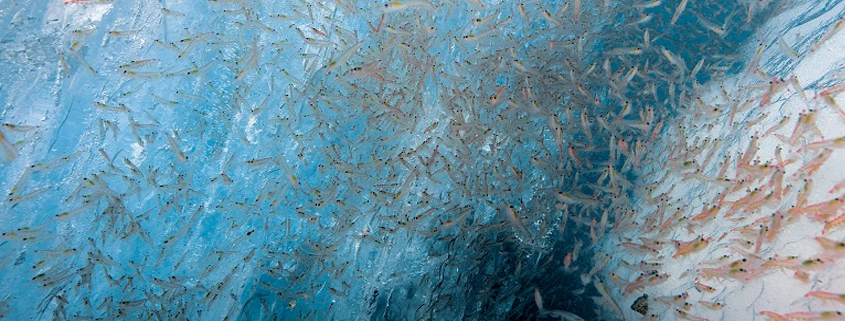Specialist of derived product from krill, AkerBioMarine ® uses an ecological technology to catch krill (Eco-Harvesting®) which allows to maintain the nutritional integrity of the crustacean and to minimize the impact on the environment. AkerBioMarine ® offers high quality ingredients with strong content of healthy actives: phospholipids, omega-3 and astaxanthin.
Aker BioMarine® is the only krill supplier that controls the entire harvesting and production process.
Their supply chain extend from the harvesting of krill in Antarctic waters to our krill oil manufacturing plant in Houston and the logistics platform in Montevideo.
Their custom-built ships produce krill flour immediately after krill is shipped. This method guarantees optimal product quality.
AkerBioMarine® closely cooperate with the regulatory and environmental authorities and all the party involved such as the Commission for the Conservation of Antarctic Living Marine Resources (CCALMR), the Marine Stewardship Council (MSC), and the World Wildlife Fund for Nature (WWF-Norway).
Video: Omega-3 and phospholipids
What is Krill?
Krill is a small shrimp-like crustacean composed of long-chain omega-3 fatty acids: eicosapentaenoic acid (EPA) and docosahexaenoic acid (DHA), phospholipids, choline and astaxanthin. Krill feeds on microscopic algae and plays a key role in the ocean ecosystem, being an integral part of the survival of many marine species. Present in most oceans, it is found in large numbers in Antarctica, due to the high presence of microscopic algae.
An eco-responsible fishing industry
Krill oil is certified eco-responsible by the Marine Stewarship Council (MSC). Krill fishing has been rated “A” for the past 4 years by the SFP (Substainable Fisheries Partnership).
To further protect the environment, Aker Biomarine has chosen to fish from the coast (10 miles) during the breeding season of marine mammals.
Living in the pristine and unpolluted waters of the Southern Ocean, Antarctic krill is virtually free of environmental contaminants and toxins.





